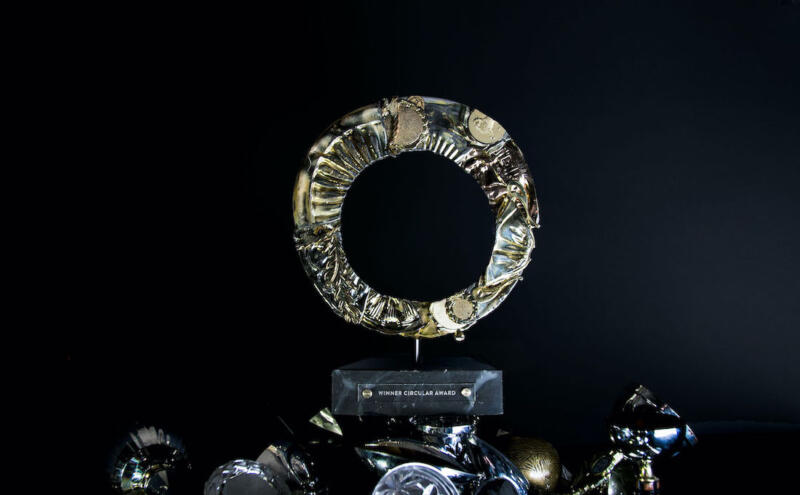NS and E-waste Race win Circular Award 2021!
February 02, 2021
The Circular Award Business 2021 was won by the Dutch Railways (NS). The Circular Award Public 2021 has been presented to E-waste Race. The prizes go to the most innovative projects and products of companies and governments that show what the circular economy can mean for the Netherlands.
In addition, architect Thomas Rau and entrepreneurs Klaske Kruk and Guido Braam (member of the HCH Supervisory Board) received the Circular Hero 2021 recognition for their efforts as a driving force. The sixth edition of the Week of the Circular Economy has started with the award ceremony.
This article was first published in Dutch on www.deweekvandecirculaireeconomie.nl.

Circular Award Business 2021: Dutch Railways (NS)
After twenty years of use, the NS has modernized 656 vehicles. With the modernization, 99 percent of the parts of the old train will be given a second life. This will allow the train to transport passengers for another 20 years and prevent waste and the use of new raw materials. This circular way of train modernization is unique in the world. From 2030, the Dutch Railways wants to produce fully circular trains.
Jury chairman Prof. Louise Vet: “The scale on which the Dutch Railways is tackling this is enormous, making the company a huge impact. They have focused on matters that lie within their sphere of influence and entered into partnerships with suppliers and customers. What the NS has achieved is very clever. They show that they are our national pride for a reason.”
Circular Award Public 2021: E-waste Race and Textile Race
Textiles and electronics have a huge environmental impact. Yet many people rarely think about this. The E-waste Race and the Textile Race challenge students to collect as much electronic waste and textiles as possible within four weeks for recycling or repair. This makes an important contribution to the awareness of the importance of a circular economy among a young generation.
“The circular transition has been a process of many years and preparing the youth is a crucial factor for acceleration”, says jury chairman Dr. Oscar van den Brink (Nouryon, initiator KIA-CE). For the next step, the jury challenges the initiators to consider how the circular impact can be increased. Can these competitions yield more than awareness?
Runner ups for the Circular Award Business: VepaDrentea and Swapfiets
The two other finalists who competed for the Circular Award Business were VepaDrentea and Swapfiets.
With the Hemp collection, VepaDrentea has made chairs with a shell made of a unique biomaterial of hemp and resin. A technological breakthrough is the development of the 100 percent vegetable resin, which is functionally equivalent and fully recyclable. The jury was impressed by the unique, innovative biomaterial that has been developed in collaboration with Plantics and patented worldwide.
Swapfiets is a consumer product with a circular business model that is used directly by the end user. It appealed to the jury that this is an appealing example that brings the circular economy practically close to the end user. Swapfiets started offering bicycles as a service in 2014, already a circular business model. This business model has given rise to the incentive to make the bicycle fully circular as well. At the moment 88 percent of the Swapfiets Deluxe is circular, with the ambition to be fully circular by 2025.
Runners Up for the Circular Award Public: Value Ring and Biopartner 5
Two other finalists were also in the Public category: Value Ring from Zwolle and the consortium of parties that worked on Biopartner’s new lab in Leiden.
Something special happened at lab building 5 of Biopartner, according to the jury of the Circular Award Public. The collaborating parties have dismantled a complete steel skeleton of a donor building and reused it nearby. This not only saves CO2 emissions that would be released when using new steel. Pollution during transport is also minimized in this way. This concept may well be scalable and replicable. That is much needed. Many interesting and innovative examples have already been realized, but at the same time circular construction is anything but commonplace in the construction sector.
ValueRing is a circular craft network of 22 partners in the Zwolle region. ValueRing is looking for high-quality application of materials that are released at the “back” of the thrift store. On top of the circular impact, the jury particularly praises this initiative for building and collaborating within a broad ecosystem. The circular economy requires partnerships within chains and regions. That is certainly not always easy.
